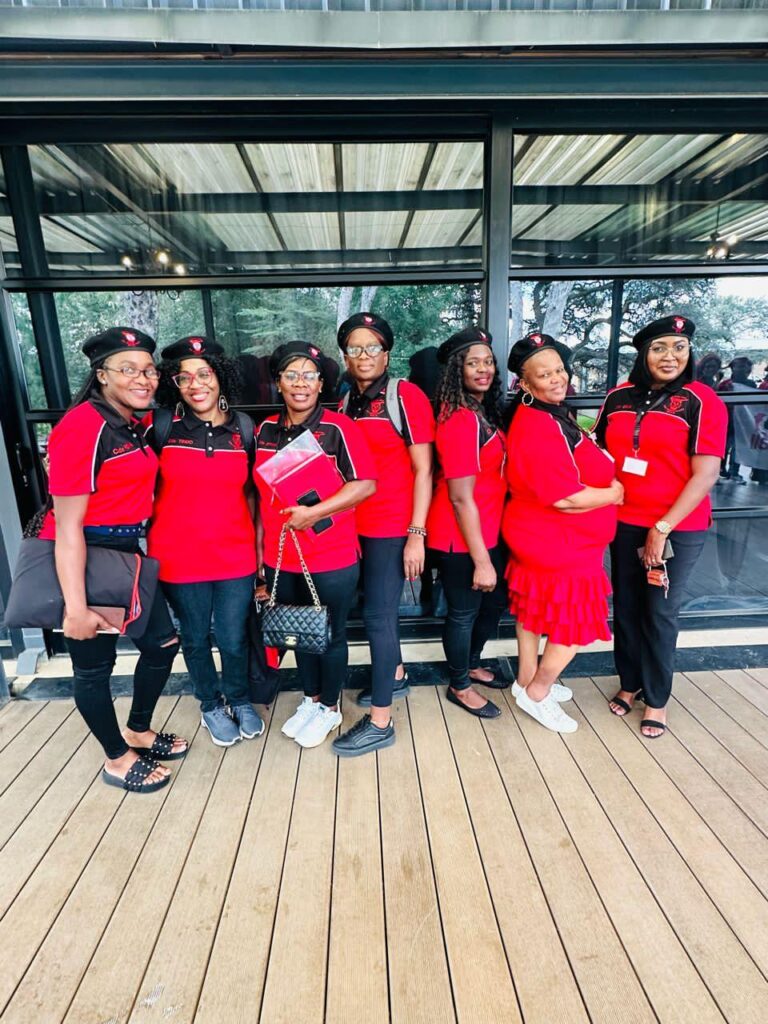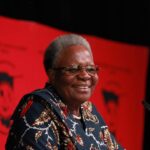13 March, 2024Namibian unions say that in Africa it is out of the ordinary to find a gender equality activist at national government’s top level. But when that happens, it provides greater opportunities for unions to engage with government in their fight for gender equality and women workers’ rights.
The speeches by Namibian Vice President, Netumbo Nandi-Ndaitwah, at International Women’s Day (IWD) celebrations, in which IndustriALL affiliates, Metal and Allied Namibian Workers Union (MANWU), and the Mineworkers Union of Namibia (MUN) participated, confirms that she is fighting on workers’ side on gender equality.
Unions say her involvement is one of the reasons Namibia was the first African country to ratify International Labour Organization Convention 190 to eliminate violence and harassment in the world of work. As minister of women’s affairs, she carried out a national campaign on breaking down barriers that were rooted in cultural norms. She said harmful cultural norms were responsible for gender-based violence and harassment (GBVH) at the workplace and eradicating them has a direct impact on ending GBVH. She is also advocating for gender inclusivity at the workplace and has accepted invitations to union events.
There is also evidence of her experience in government that goes way back to the implementation of the Beijing Platform of Action in Namibia and on the continent.
On 8 March at IWD commemorations, organized by the National Union of Namibian Workers, one of three national trade union centres in the country, under the theme: Inspiring women in leadership for inclusion, Nandi-Ndaitwah said:
“This year the UN has themed IWD as: Invest in women, accelerate progress, which highlights the importance of gender equality. Allow me to reaffirm the Namibian government’s commitment to upliftment and empowerment of women in society towards the eradication of historical and cultural injustices perpetrated against women which undermine their ability to realize their full economic potential.”
To address the gender pay gap, she said there must be equal pay for work of equal value irrespective of a worker’s gender.
At the MUN conference earlier, whose theme was empowering and gearing women up for future leadership roles, she said:
“As government we have paved the road for women’s struggles with our experiences, and have made steady progress through national constitutions, laws, and policies. We are fighting against gender inequality because it denies women opportunities.”
However, for women empowerment to be realised, she said there should be inclusive representation and decision making at workplaces, and gender sensitization policies should be promoted. She added that skills training should include collective bargaining. She emphasized the need for action against GBVH which she said is a hindrance to women empowerment and that harmful cultural norms that perpetuated it should be dismantled.
IndustriALL' s Sub-Saharan Africa regional secretary Paule France Ndessomin said:
“It is reassuring that we have gender equality champions in the Namibian government like Vice President, Nandi-Ndaitwah. This is important in the unions quest for meaningful engagement in social dialogue without the anti-union hostility that we have witnessed in some countries, and that women issues in Namibia will be at the top of her agenda.”




